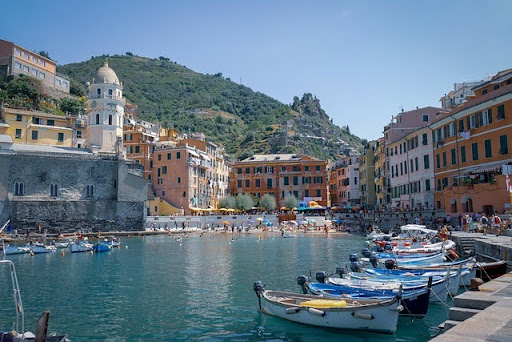Italy’s immigration laws outline clear guidelines for foreign nationals who need to leave and re-enter the country, especially for those in the process of renewing their residence permits or applying for their first permits. These rules ensure that immigrants maintain their legal status while traveling, but it is important to understand that the legal allowances primarily apply within Italy and not throughout the entire Schengen Area. This distinction becomes particularly significant for those relying on the Schengen 90-day visa-free travel rule, as this can lead to potential legal complications if misunderstood.
Legal Provisions for Those Awaiting Residence Permit Renewal
Foreigners in Italy awaiting the renewal of their residence permits can leave and re-enter the country under specific conditions. This facilitated procedure allows immigrants to travel outside Italy as long as they hold the following documents:
Receipt from Poste Italiane S.p.A
This receipt certifies the submission of the application for the renewal of their residence permit or their EC residence permit for long-term residents. This is a critical document that proves the immigrant’s intent to comply with Italy’s legal immigration requirements.
Expired Residence Permit
While expired, the residence permit must still be presented to verify the previous legal residency status of the immigrant.
Valid Passport or Equivalent Travel Document
As in any form of international travel, the immigrant must carry a valid passport or another equivalent travel document for identification purposes.
This provision allows immigrants to leave and re-enter Italy without issue, but only under the condition that they re-enter through an Italian external border crossing point. It is crucial to remember that immigrants cannot transit through other Schengen countries while returning to Italy. This restriction ensures that travelers are only processed by Italian immigration authorities, as other Schengen countries may not accept the expired residence permit or the renewal receipt as valid documentation.
First-Time Residence Permit Applicants can also travel with a receipt if your permit application is based on employment, self-employment, or family reunification.
The same procedure applies to foreigners who have submitted their application for their first residence permit. This category includes immigrants applying for residence permits for employment, self-employment, or family reunification. These individuals can also leave and re-enter Italy if all the conditions below are met:
- They leave and re-enter Italy through any Italian external border crossing point. (Circular March 11, 2009)
- They carry a valid passport or travel document, along with the entry visa specifying the reasons for their stay, such as employment, self-employment, or family reunification.
- They present the receipt issued by Poste Italiane S.p.A, proving the submission of their application for the first residence permit.
- They do not visit other Schengen countries
As with those awaiting permit renewal, first-time applicants are not allowed to transit through other Schengen countries. The Schengen Area’s immigration rules require travelers to have valid residence permits when crossing borders within the zone, and the receipt issued by Poste Italiane does not grant the legal right to move freely across Schengen states beyond Italy. It is crucial for applicants to adhere to this rule to avoid fines, deportation, or other legal consequences.
The Schengen 90-Day Rule and Its Implications
The Schengen Area allows non-EU citizens to travel freely without a visa for up to 90 days within a 180-day period. However, once this period expires, the immigrant no longer has the legal right to remain or move freely within the Schengen Area, unless they possess a valid residence permit from a Schengen state. This creates a particular challenge for immigrants who have either an expired residence permit or are waiting for their first permit, as their 90-day visa-free period may expire before their new permit is issued.
Many immigrants mistakenly believe that their receipt from Poste Italiane grants them the legal right to move freely across the Schengen Area. However, this is not the case. The receipt only permits them to stay within Italy until their new residence permit is issued. Beyond Italy, the 90-day rule still applies. If an immigrant overstays their visa-free period in another Schengen country, they risk fines, deportation, or a ban from entering the Schengen Zone.
The Italian government’s rules are designed to prevent immigrants from facing legal issues due to this misunderstanding. While there are no physical border checks within the Schengen Area, random police checks at train stations, airports, or during travel within Schengen countries can still occur. Immigrants are strongly advised to avoid leaving Italy during this period if they have already exhausted their 90-day visa-free allowance, as their legal standing in other Schengen countries is compromised.
Traveling with Children Under 14 and Temporary Permesso
For immigrants with children under the age of 14, Italian law provides a specific provision. According to a circular letter dated June 27, 2007, parents can request a temporary residence permit from the Questura (Italian police headquarters) that includes the personal details of their children. This document, with limited validity, allows the children to leave and re-enter Italy temporarily.
While this temporary residence permit offers a legal solution for families needing to travel with minors, it is important to note that the process of obtaining this temporary permesso is often lengthier than simply waiting for the original residence permit to be issued. Parents considering this option should weigh the urgency of their travel against the potential delays in acquiring this temporary document. Moreover, like the regular residence permit, this temporary permit only allows travel within Italy and does not grant broader access to other Schengen countries.
Case Studies: Practical Applications of the Immigration Rules
Case 1: Maria’s Experience with Residence Permit Renewal
Maria, a non-EU immigrant living in Italy, had submitted her application for the renewal of her residence permit and received the receipt from Poste Italiane S.p.A. She needed to attend a family event in her home country and planned to return to Italy afterward. Armed with the necessary documents—her expired residence permit, the renewal receipt, and her valid passport—Maria was able to leave and re-enter Italy through an external border crossing point without any legal issues. However, had she transited through another Schengen country, she could have faced problems, as her documents only allowed her to remain in Italy.
Case 2: Ahmed’s Family and Temporary Permesso for Minors
Ahmed, a skilled worker, had applied for a residence permit in Italy. He needed to travel urgently with his two children, both under the age of 14, while awaiting the issuance of his permit. Ahmed requested a temporary residence permit for his children from the Questura to ensure they could legally leave and re-enter Italy. However, the process of obtaining the temporary permit took longer than expected, and his original residence permit was issued before the temporary one. In hindsight, waiting for the original permit would have been faster.
Conclusion
Italy’s immigration laws offer a structured system for immigrants who need to leave the country temporarily while awaiting residence permit renewals or first-time permits. However, it is vital for immigrants to understand that the legal provisions, such as the receipt issued by Poste Italiane, apply only within Italy and do not grant broader Schengen rights.
Travelers must be cautious, especially regarding the 90-day Schengen visa-free rule, as overstaying in other Schengen countries without a valid residence permit can result in fines or deportation. For families with minors, the option of a temporary residence permit exists but may not always be a quicker solution than waiting for the original residence permit to be processed. By adhering to these guidelines and understanding the limitations of their legal status within Schengen, immigrants can avoid unnecessary legal complications.




